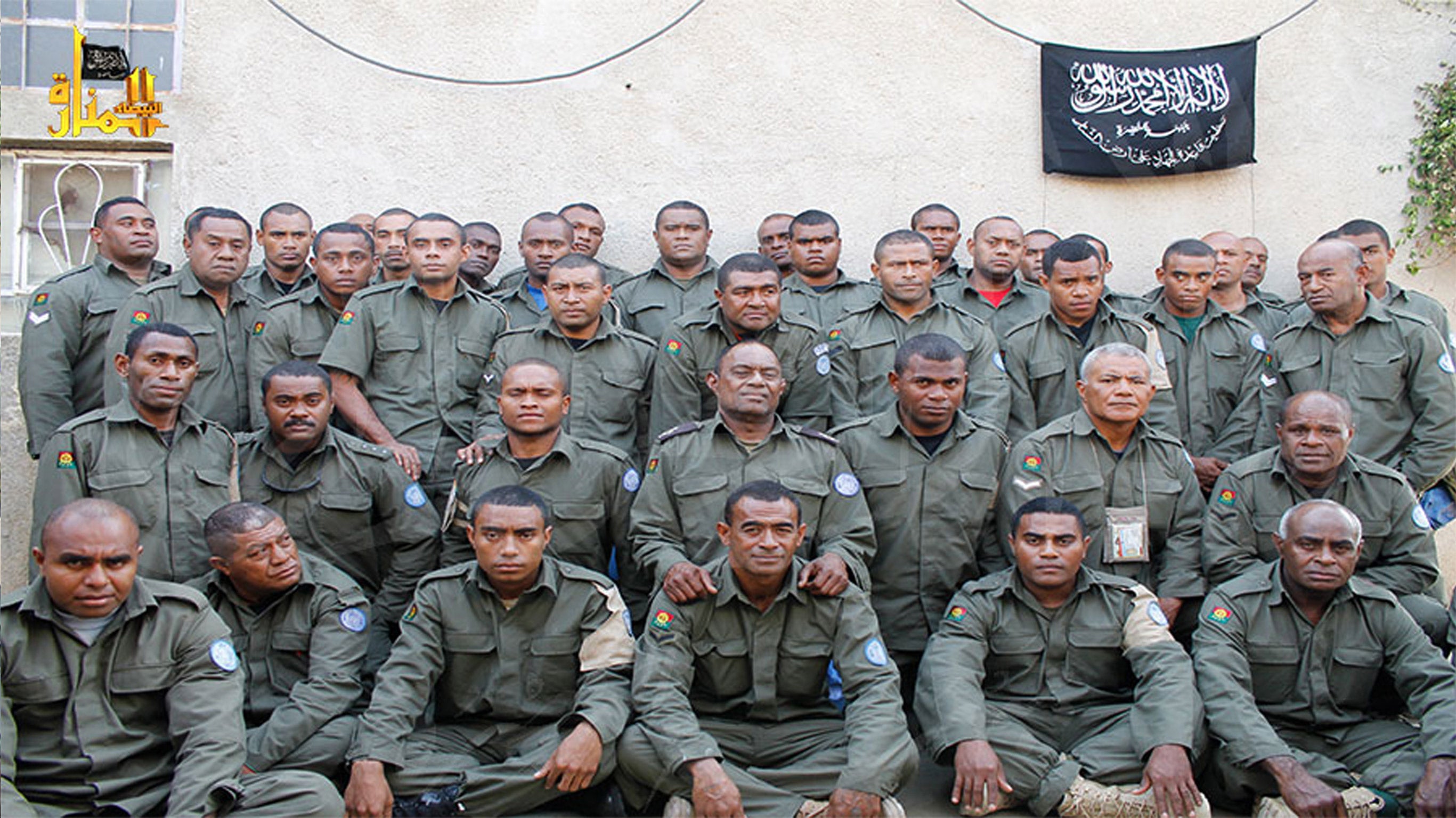Syrian crisis: Rebels set conditions for release of Fijian UN peacekeepers
Jabhat al-Nusra is seeking its removal from a UN terrorist list and compensation for the killing of three of its fighters

Your support helps us to tell the story
This election is still a dead heat, according to most polls. In a fight with such wafer-thin margins, we need reporters on the ground talking to the people Trump and Harris are courting. Your support allows us to keep sending journalists to the story.
The Independent is trusted by 27 million Americans from across the entire political spectrum every month. Unlike many other quality news outlets, we choose not to lock you out of our reporting and analysis with paywalls. But quality journalism must still be paid for.
Help us keep bring these critical stories to light. Your support makes all the difference.
Al-Qa’ida-linked Syrian rebels holding 45 Fijian peacekeepers hostage have made a set of demands for their release, including the extremist group’s removal from a UN terrorist list and compensation for the killing of three of its fighters in a shootout with international troops.
Jabhat al-Nusra seized the Fijians last Thursday in the Golan Heights, where a 1,200-strong UN force monitors the buffer zone between Syria and Israel. The rebels also surrounded two Philippines units, but those troops escaped at the weekend.
Speaking in the Fijian capital, Suva, military commander Brigadier-General Mosese Tikoitoga said Jabhat al-Nusra has made three demands for the peacekeepers’ release: to be taken off the UN terrorist list; the delivery of humanitarian aid to parts of the Syrian capital, Damascus; and payment for three of its fighters it said were killed in a shootout with UN officers.
Brig-Gen Tikoitoga did not say whether the rebels’ demands would be seriously considered. He said the UN had sent hostage negotiators to Syria to take over discussions from military leaders.
“Negotiations have moved up to another level with the professional negotiators now in place,” he said.
Brig-Gen Tikoitoga also released the names of the 45 detained soldiers, who he said were led by Captain Savenaca Siwatibau Rabuka. He asked Fiji’s community and church leaders to help look after the families of the captive troops and the public to offer support.
“I appeal to all Fijians that while we pray for our soldiers in Syria that we be sensitive to the families,” he said.
“The UN has assured us they will use all of their available resources for the safe return of our soldiers.”
Syrian rebels, including Jabhat al-Nusra militants, seized a border crossing with Israel on the Syrian side of the Golan Heights last Wednesday.
The area has been engulfed in heavy fighting between the opposition fighters and President Bashar al-Assad’s forces since then.
In Manila, military chief of staff General Gregorio Pio Catapang said the 40 Philippines peacekeepers who escaped had not accepted a rebel demand that they give up their firearms and surrender because that would have put them in grave danger.
General Catapang said the rebel demands for the Fijians’ release showed their true nature.
“We don’t negotiate with terrorists,” he said. “We have machine-guns and crew-served weapons so if we give them our weapons, this will help create an international problem.”
Jabhat al-Nusra, in a statement posted online on Sunday, accused the UN of doing nothing to help the Syrian people since the uprising against President Assad began in March 2011. It said it seized the Fijians in retaliation for the UN ignoring “the daily shedding of the Muslims’ blood in Syria”.
Meanwhile, the World Food Programme provided assistance to a record 4.1 million people inside Syria last month, reaching more of those in need with shipments traversing borders and front lines, the agency said today.
Syria’s civil war has created a massive humanitarian crisis, with 10.8 million people in need of assistance, including 4.7 million in hard-to-reach areas, according to the UN.
Getting humanitarian aid to them has proven a massive challenge for the international community.
The Syrian government has refused to allow the UN to ship assistance to those in need without Damascus’s approval, ensuring that many rebel-held areas remain off-limits.
AP
Subscribe to Independent Premium to bookmark this article
Want to bookmark your favourite articles and stories to read or reference later? Start your Independent Premium subscription today.
Join our commenting forum
Join thought-provoking conversations, follow other Independent readers and see their replies
Comments